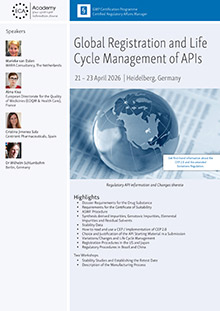THE 2011 FDA WARNING LETTERS REPORT
Unsatisfactory Validation of analytical Methods is the dominating Topic in the Warning Letters for API Manufacturers
In the previous fiscal year (October 2010 through September 2011) altogether 14 API manufacturers received a Warning Letter following an inspection by the US FDA. That is almost three times as many as in the year before, in which the authority issued 5 Warning Letters.
Among the 14 Warning Letters addressees were four Chinese, three Indian API manufacturers and respectively one from Canada, Spain and the UK. The remaining four manufacturers are based in the US.
The detailed analysis of the Warning Letters shows that the GMP deficiencies found almost always came from the area of analytics. The most frequent reasons for objections were the use of not validated analytical methods, the lack of use of appropriate analytical procedures as well as instructions for investigations following OOS results. The handling of documentation and of analytical raw data was also frequently criticised.
The following listing shows a brief analysis of the 14 Warning Letters in the fiscal year 2011. The findings in the area of analytics are marked bold.
Chinese API Manufacturers:
- No PQ and Calibration of lab devices
- Inadequate analytical procedures
- No investigation of cause after complaints
- Re-processing of API batches without supporting stability data
- No analytical methods validation, no confirmation of stability indicating significance
- No qualification and calibration of QC laboratory instruments
- No testing of solvents before batch certification despite confirmation on the certificate
- No SOP for preventing cross contamination
Indian API Manufacturers:
- No process validation
- Incomplete investigation after OOS results
- Incomplete cleaning validation
- Fundamental deficiencies in the work of the quality unit
- No SOP for Change Control, OOS investigations, management of deviations in production and in the lab, complaint management, annual product review
- No raw data from incoming test
- Subsequent entry in the batch protocol
- Impurities due to inappropriate building design
- No SOP for preventing cross contaminations
API Manufacturers in Canada, UK and Spain:
- Handling of raw data not GMP compliant
- No stability studies to support the expiration date
- Inadequate deviation management by the quality unit
- No process validation
- Inappropriate analytical methods
- No stability testing
- No qualification of the equipment for purified water
- No investigation following OOS results
- Inappropriate analytical methods
- Missing analytical raw data

Recommendation
Berlin, Germany9/10 April 2025
KPIs and Quality Metrics
API Manufacturers in the US:
- Inadequate documentation and misinterpretation of analytical data
- No analytical methods validation
- No investigation following OOS results
- No qualification of analytical instruments
- Poorly trained personnel
- No calibration of balances
- Subsequent entry in the batch protocol
- No cleaning protocols
- No methods validation
- Batch certification with invalid specifications
- Release of an outdated Certificate of Analysis
- No investigation of cause after complaints
- No qualification of contract labs, no supplier qualification
- Inappropriate equipment resp. supporting tools, therefore contaminations
As can be seen in this listing, the deficiencies in the analytical lab area are independent from the location of the company. The FDA found these defects in Asian as well as in European and US companies.
GMP violations in analytics seem to be a permanent topic at API manufacturers; in the Warning Letters of the fiscal year 2010 a similar trend could be noticed.
With regard to Warning Letters for medicinal products manufacturers the key issues have also been more or less the same in the past three years. The FDA investigators again and again find the most frequent deficiencies in the conducting of the production record review, in the tracking of deviations and in the lab area.
The following table compares the three most frequent deficiencies in the past three fiscal years.

An interesting detail: In the past fiscal year problems with microbiological impurities and unsatisfactory controls are the third most objection of the FDA. The last time this was the case was in 2005.

Recommendation
Hamburg, Germany29/30 April 2025
Efficient Batch Record Design and Review
For 10 years CONCEPT HEIDELBERG has been collecting and systematically analysing the FDA Warning Letters issued to medicinal products manufacturers and manufacturers of blood and blood processing operations as well as to API manufacturers. Centrepiece of the annual analyses are the excerpts from the original Warning Letters. These excerpts are shortened for readability reasons without neglecting the context in which the GMP violation was found.
Author:
Dr Gerhard Becker
CONCEPT HEIDELBERG



